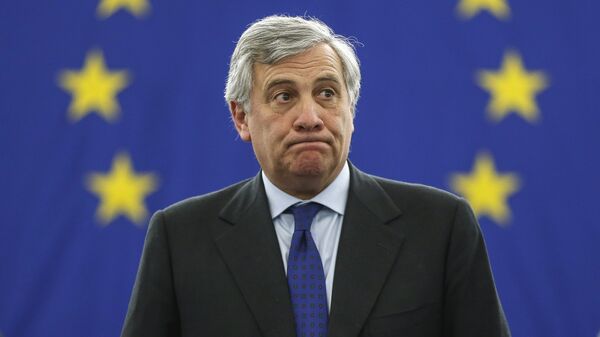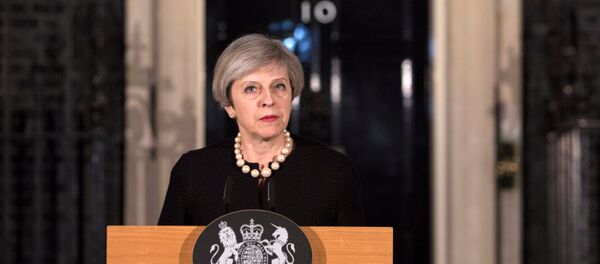Antonio Tajani said that the negotiations on Brexit have been transparent.
He said that no deal on the rights of EU citizens in Britain and UK nationals in the EU "means no deal at all."
He went on to stress that the United Kingdom should respect all EU laws, including the rights of EU citizens residing in the country, until the withdrawal is complete, stressing that the parliament will defend the rights of EU citizens.
He emphasized a no-deal scenario in case of Brexit would be a "catastrophe" for both the EU and the UK.
"It's evident that the no-deal scenario would be a catastrophe for all, but especially for the United Kingdom," he stated, listing higher trade tariffs, economic uncertainty and rising food prices as some of the things that would plague Britain if it does not secure a deal with Europe.
"The European Parliament's first priority is to safeguard the interest of citizens. For this, we must ensure an orderly withdrawal through successful negotiations conducted in good faith… An orderly exit is an absolute requirement and a pre-condition for any potential future European Union-United Kingdom partnership. This is not negotiable," Tajani said.
Tajani said that orderly Brexit is a precondition and a requirement for any future partnership between Brussels and London.
EU-UK cooperation on defense, intelligence and judicial issues, as well as on fighting terrorism, should be continued even if the parties fail to reach agreement on post-Brexit relations between the bloc and the United Kingdom, Antonio Tajani said.
"I think that this cooperation on defense, police, intelligence, action against terrorism and judicial matters should continue with the UK whether there is deal or not. For us the cooperation against terrorism, against crime is a priority," Tajani said.
At the same time, the Brexit negotiator from the UK said that London doesn't want people to "become a bargaining chip" in the talks.
Guy Verhofstadt said that he hoped for "fair negotiations."
The EU parliament coordinator for Brexit said that the transition period after Brexit should be longer than 3 years.
"We do not exclude a transition period that, in our point of view, needs to be limited in time and we propose three years," Verhofstadt said.
The United Kingdom may reapply to the European Union, but its possible return should not be used in attempt to get more time or additional advantages in negotiations, Guy Verhofstadt, the European Parilament's Brexit (EP) coordinator, said.
"We would not like backtracking of Article 50 to be used as a ploy to gain more time or secure new advantages for membership," Verhofstadt said.
The coordinator added that the European Union understood that the United Kingdom could have "a change of heart," but stressed that its new application would have to be approved by all EU member states.
UK Permanent Representative to the European Union Tim Barrow gave a letter of official notification of the United Kingdom’s withdrawal from the bloc signed by UK Prime Minister Theresa May to Tusk earlier on Wednesday.
After the letter is received by the European Council, the two-year countdown on Brexit negotiations will begin.
According to the rules set out by the Article 50 of the Lisbon Treaty, the country which wishes to withdraw from the bloc has to do so two years after the official notification. Therefore, the United Kingdom should leave the European Union on March 29, 2019.



